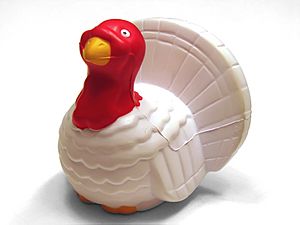Stress (biology) facts for kids
Stress is how your body and mind react to challenges or changes around you. It's a feeling of pressure or tension. These challenges are called "stressors." Stressors can be things happening inside you, like feeling sick, or things outside you, like a big test or a loud noise. Everyone feels stress sometimes. It's a normal part of life, but too much stress can make you feel unwell.
Contents
Understanding Different Kinds of Stress
There are a few main types of stress. Each type can make you feel different things.
Quick Stress: Acute Stress
Acute stress happens fast and usually doesn't last long. It's your body's immediate reaction to a sudden challenge.
- What it is: A short burst of stress.
- Examples: Finishing a school assignment right before the deadline, or quickly avoiding something in your path. Your heart might beat faster, and you might feel a rush of energy. Once the event is over, this stress usually goes away.
Long-Term Stress: Chronic Stress
Chronic stress lasts for a long time. It can wear you down and make you feel tired or frustrated.
- What it is: Stress that continues for weeks, months, or even longer.
- Examples: Feeling unhappy about school for a long time, or dealing with ongoing family problems. This type of stress can make you feel drained and might affect your mood or health over time.
Scary Event Stress: Traumatic Stress
Traumatic stress happens after a very scary or dangerous event. It can cause strong feelings of fear and shock.
- What it is: Stress that follows a shocking or terrifying experience.
- Examples: Experiencing a natural disaster like a hurricane, or being in a serious accident. This kind of stress can be very intense. Sometimes, if these feelings don't go away, it can lead to something called Post-Traumatic Stress Disorder (PTSD).
How to Handle Stress
Dealing with stress is important for your health. Here are some ways to manage it:
Taking a Break from Stressors
Sometimes, the best thing to do is step away from what's causing you stress.
- If a school project is making you stressed, take a short break.
- You could sleep, listen to music, or do a hobby you enjoy.
- Coming back to the problem later can help you see it differently.
Moving Your Body
Being physically active can really help reduce stress.
- Exercise helps your body release energy and tension.
- It can also improve your mood.
- Try playing sports, going for a walk, or dancing.
Getting Support from Others
Talking to people you trust can make a big difference.
- Friends and family can offer support and advice.
- Sharing your feelings can make you feel less alone.
- Sometimes, just talking about what's bothering you helps.
Relaxing Your Mind
Simple relaxation techniques can calm your body and mind.
- Try meditation, which is focusing your mind to feel peaceful.
- Deep breathing exercises can also help slow your heart rate and relax your muscles.
- These methods can help you feel more in control.
Getting Help from Professionals
If stress feels too big to handle on your own, it's okay to ask for help.
- Health care professionals, like doctors or counselors, can provide guidance.
- They can help you understand your stress and find healthy ways to cope.
- It's a sign of strength to ask for help when you need it.
See also
In Spanish: Estrés para niños
 | William M. Jackson |
 | Juan E. Gilbert |
 | Neil deGrasse Tyson |


